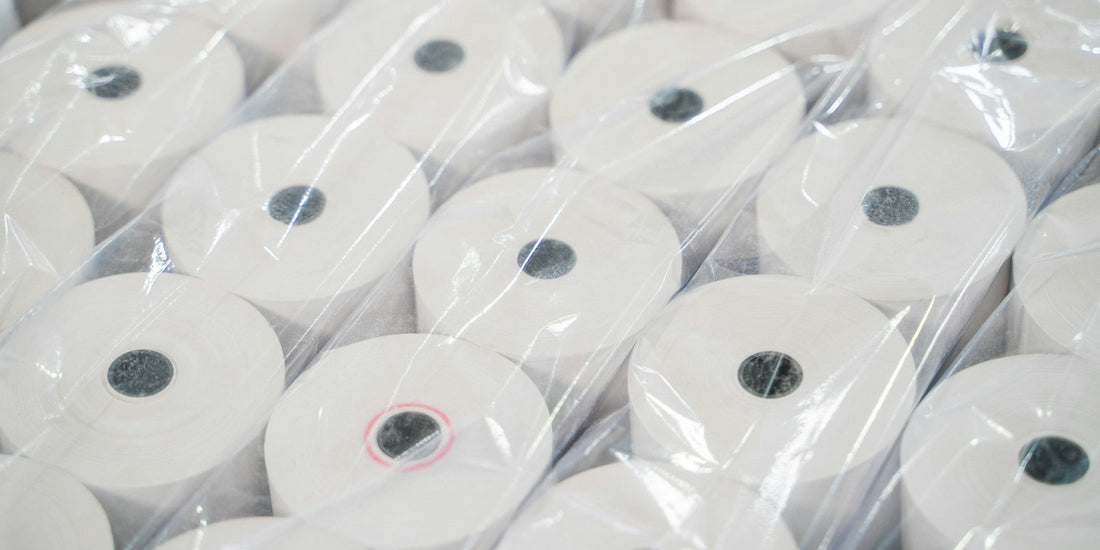
Embracing Phenol-Free Labels: A Game Changer for Converters and Users
As industries move toward safer and more sustainable materials, the label sector is experiencing a significant transformation. One of the most notable shifts is the adoption of phenol-free labels, driven by regulatory concerns, environmental considerations, and growing consumer awareness. This change is particularly crucial for businesses that rely on thermal printing for their labeling needs, including retail, logistics, healthcare, and manufacturing.
Why Are Phenol-Free Labels Gaining Traction?
Traditional thermal paper labels often contain bisphenol A (BPA) or bisphenol S (BPS), which serve as heat-sensitive developers in the printing process. However, research has raised concerns about the potential health risks associated with bisphenols, leading to regulatory actions worldwide. The European Union, for instance, has restricted BPA in thermal paper, and similar regulations are emerging in other regions. In response, companies are proactively seeking safer alternatives, fueling the rise of phenol-free thermal paper.
Beyond regulatory compliance, businesses are prioritizing sustainability and worker safety. Phenol-free labels eliminate the risks associated with bisphenol exposure and make recycling more straightforward, aligning with corporate environmental goals and consumer demand for eco-friendly products.
Impact on Label Converters
For label converters, the transition to phenol-free labels presents both challenges and opportunities:
- Material Sourcing: Converters must establish new supply chains to secure phenol-free thermal paper, which may have different performance characteristics than traditional options.
- Process Adjustments: Printing and converting processes may require modifications to ensure compatibility with new materials, including testing different coatings, adhesives, and substrates to maintain print quality and durability.
- Customer Education: Since phenol-free labels may perform slightly differently, converters must educate their customers on necessary printer adjustments and best practices for storage and handling.
- Competitive Advantage: Companies that transition early can differentiate themselves by offering a safer, more sustainable solution, appealing to businesses aligning with evolving regulations and sustainability goals.
- Cost Implications: Phenol-free labels may have a slightly higher production cost due to the use of alternative chemical developers and specialized coatings. However, as demand increases and production scales up, costs are expected to stabilize.
What Users Need to Know
For businesses using thermal labels, the shift to phenol-free alternatives comes with key considerations:
- Compatibility: Most phenol-free thermal labels are designed to work with existing thermal printers, but users should verify compatibility to avoid print quality issues.
- Performance Differences: Some phenol-free materials may have a slightly different appearance or require minor printer setting adjustments. Testing before large-scale implementation is advisable.
- Regulatory Compliance: Transitioning to phenol-free labels helps businesses stay ahead of regulations and avoid potential disruptions.
- Sustainability Goals: Companies aiming to enhance their environmental initiatives can benefit from adopting phenol-free labels.
- Durability and Performance: Phenol-free labels undergo rigorous testing to ensure they match the longevity and clarity of traditional labels. Businesses should conduct their own performance tests to confirm suitability for specific applications.
- Recycling Considerations: Unlike traditional thermal paper that contains bisphenols, phenol-free labels simplify recycling and reduce contamination risks in paper waste streams, making them a preferable option for eco-conscious businesses.
Print.Save.Repeat.'s Commitment to Our Customers
At Print.Save.Repeat., we are committed to providing our customers with high-quality, sustainable, and safe labeling solutions. As part of our dedication to innovation and environmental responsibility, we have embraced the shift to phenol-free labels, ensuring our products align with the latest industry standards and regulatory requirements. Our team works diligently to source the best materials, rigorously test performance, and educate our customers on the benefits and best practices for using phenol-free labels. We believe in making sustainability accessible without compromising on quality or efficiency.
Looking Ahead
As demand for safer, more sustainable labeling solutions grows, phenol-free labels are set to become the industry standard. Label converters who proactively adapt to this trend will position themselves as leaders in the market, while users who make the switch will benefit from compliance, safety, and environmental advantages.
For businesses navigating this transition, staying informed and working closely with suppliers will be key to ensuring a smooth adoption process. Whether you’re a converter or an end user, now is the time to explore phenol-free labels and prepare for the future of sustainable labeling.
